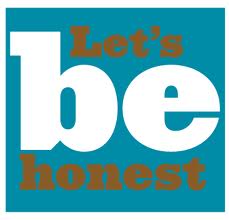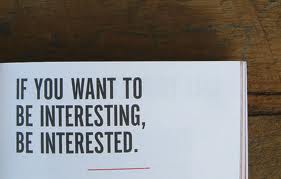Recently, a client called and asked, “How bold is too bold when seeking a new job?” My answer was, “It depends, can you share some details?” There was a laugh and acknowledgement that, of course, the details were important.
Her situation? After three interviews (where she had developed, prepared and made major presentations to groups of up to 20 people), an invitation was extended for a fourth interview the following Monday. This interview required her to develop a 4th original presentation on a topic specific to the work she would be doing for the organization. And, this time, to deliver the information to a group of 50, including senior staff and investors. My client, a highly credentialed and published professional in her field, admitted that after the last required presentation and subsequent conversation with the hiring manager, she was feeling a bit unappreciated, used and overwhelmed with self-doubt.
Her questions included : Did I already mess up this opportunity? Do they not value me and the skills I bring? Did the potential employer expect her to work for free? Additionally, she began to wonder: Maybe I can’t do the job; maybe they don’t see my skills; or maybe they have no plans to hire me after four interviews.
As she recapped the events and the conversations of the week, her emotions bounced from self-doubt to frustration to anger. She shared she had it! Enough! She needed to stop the doubt train, but how? She took action. She called the hiring manager and said in a bold tone, “Hire me and I will make the presentation for you on Monday, your investors will love you, and if I don’t work out, you’ll know and you can let me go.”
What followed was the voice in her head screaming, “Oh no! What did I just do? I was too bold in that statement and now I may never get hired!”
Quickly, she realized the real issue was not being too bold. The real issue was addressing her doubt and frustration and learning how to managing her emotions in a productive manner.
She was right. She needed to learn how to manage her self-doubt so she could deliver the same message, in more constructive way, to the hiring manager to obtain the outcome she desired. In this situation, she was too bold for this particular hiring manager — a job offer did not materialize and the hiring manager stated in an email he was disappointed she declined the final interview. Her emotions got the best of her at a critical point in the conversation. She reacted instead of responding.
Do you ever find yourself in this type of situation? It can be a tough call, especially if you are feeling like enough is enough. I imagine you have experienced similar situations — I certainly have. And, for a long time, I always seemed to handle them in a less than ideal way.
What finally helped me? Working to manage the situation before I arrive at the “enough is enough” place and to be intentional and clear about what I will do when a similar situation arises. I wish I could tell you that these days I am always good at managing those situations, but I can’t – it is a work in progress. However, I am much better and rarely do I cross the line to very bold and direct without it being an intentional choice.
Here are the steps that work for me:
- Get Clear. Think about what you want and what you’re willing to do to achieve what you want. Example: For my dream job, I am willing to commute, but not willing to relocate.
- Write it down. Write down what you want, why it is important and your intentions. Example: Do you want a job offer? Do you want to be liked? Do you want to be seen as the new director and the next VP of Operations?
- Think about what to say. Does your message match your personal brand? Does your message help you achieve what you truly desire? Does your message fit your target audience? Is there better way to say it? Does your message come across the way you want it to? Draft your message on paper, if needed, and ask your coach to help you fine tune it.
- Take Action. State your message, share your value, be open and continue the dialogue. Example: Mr./Ms. Hiring Manager, we have been talking for over 8 weeks. During that time I have prepared and presented three very solid presentations during 3 separate interviews demonstrating my skills, knowledge and expertise, wouldn’t you agree? <wait for reply> What is it you have not seen or learned about my qualifications that you hope a fourth interview/presentation will provide for you? <wait for a reply> Normally, for the type of presentation you have requested I am compensated as a consultant or speaker. Should we discuss my joining your team in this manner or for a trial period as an employee? <wait for reply>
These four steps serve as my guide and help me focus on the desired end result. They help me manage my self-doubt (real or imagined) so that I may perform at the top of my game.
I learned and fine-tuned these steps several years ago by asking for my coach for help. I needed a process to help me refocus and be more effective when low-vibrating emotions and self-doubt arose. Through this work, I replaced the “enough is enough” attitude and quick, bold replies with steps that helped me achieve my goals.
Are you looking for support to overcome your own self-doubt or blind spots? Working with a coach can be very helpful in achieving amazing results of your own.







